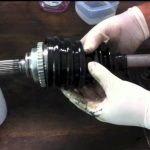
The brake system is an important component of a vehicle, without which you can lose control of the vehicle thereby endangering yourself, your passengers, and other road users.
Conversion of energy from kinetic to thermal takes place in the brake system through friction, it is this conversion that allows the vehicle to stop when you want it to through the brake pads that grabs the rotors.
Over time, there will be a need to change the brake pads. Replacing a brake pad can be done through different methods depending on your kind of vehicle, some methods require that the brake system be open while others don’t. But the question is, do you have to bleed brakes after changing pads?
Yes, you have to bleed brakes after changing pads especially if the bleeder valve was opened on the brakes and the caliper was squeezed back in place when changing the pads. However, if the system was not opened when changing the pads, you may not need to bleed the brakes.
Do You Have to Bleed the Brakes Before Changing Pads?
It is not necessary or advisable to bleed the brakes before changing pads. Bleeding brakes before replacing your brake pads will only expose the brake fluid to air which can cause further damage to the brake system.
Although it isn’t advisable to bleed brakes before replacing pads there are cases where exceptions might be made.
Depending on the sort of change that needs to be made, some changes may require that the brake line be opened, in which case you will have to be careful and quick about the whole process.
In a situation where the brakes are bled before changing pads, there will likely be a need to bleed the brakes again after the pads have been changed, this is because the brake line must have been exposed to air for a long period of time.
Having air in brake fluid isn’t something you want to deal with, all it does is make the fluid less effective by creating bubbles that fill the brake line thereby making it difficult to apply enough pressure on the brake pads.
Do You Have to Bleed Brakes After Changing Pads?
Yes, you have to bleed brakes after changing the worn brake pads however, this is in a case where the bleeder valve is opened on the brakes and the caliper is squeezed back in place when changing the pads.
Where the system was not opened when changing pads as is the case with some vehicles, you may not need to bleed brakes afterward.
Irrespective of whether the system was opened or not while changing pads, it is always better to bleed brakes after changing the pads. By doing this you can be sure no air is trapped in the brake lines.
Some school of thought is also of the opinion that bleeding a brake should only be done when the brake lines have been exposed to the atmosphere.
If there is a need to bleed the brakes, let a professional handle it if you are not sure of what the process entails or not sure of doing a great job.
What Happens if You Don’t Bleed Brakes After Changing Pads?
Not bleeding brakes after installing the brake pads will not cause anything to happen except in situations where the brake system was open.
It has been established that bleeding brakes after changing pads aren’t necessary if you did not open the hydraulic line, in such situations, it will have no effect unless air is already present in the system before the changing process.
However, if the brake system was opened while you replace the pads and the brakes weren’t bled afterward, then you may have a problem.
Opening the brake system means the brake line has been exposed to the atmosphere which invariably means air has been let inside.
Air is compressible and has no boiling point unlike fluid that is not compressible and has a boiling point, air creates gas bubbles in the brake line thereby reducing the pressure on the brake pads. Reduced pressure leads to inefficiency of the brake system.
Why You Must Bleed Brakes After Changing Pads?
Wondering why it is important to bleed brakes after changing pads? Here are some reasons you should know:
1. To Release Air that may be Trapped in the Fluid
The chances of getting air trapped in the brake line when changing brake pads are high hence, the need to bleed brakes. One of the reasons why it is important to bleed brakes after replacing your pads is in order to eliminate air in the fluid.
2. Brakes have Normal Pressure
Brake fluid provides enough pressure needed for the brake pads, if you are having difficulty stopping your car, it may be a sign that there is moisture in the brake fluid preventing it from building enough pressure.
Bleeding brakes help to release air that may prevent the fluid pressure from normalizing. But, can you add brake fluids without bleeding the brakes?
3. System Becomes Responsive and Functions Well
Another reason why you should bleed your brakes is to get a responsive and functional brake system, air will lead to unresponsiveness of the system because of the gas bubble present inside.
When is Bleeding of Brakes Necessary?
Bleeding of brakes is important but unfortunately, most people do not know the right time to do it, so we will take a look at some instances that serve as a pointer to when a brake should be bled
- As part of vehicle maintenance, brakes should be bled at least once every year all things being equal
- When the brake starts feeling spongy
- When changing brake pads, for every change of pad there should most likely be a need to bleed brakes
- When you are finding it hard to stop or apply brakes when driving a car
- When there’s a leak. Leakage is an avenue for air to get inside not only for the release of fluids.
- When replacing a worn pad, replacement of whatever kind in the system will require bleeding brakes.
Conclusion
It is important to know that you do not have to bleed the brakes every time you change the brake pads, and for times when you have to bleed the brakes, let a professional do the job. When a brake is bled wrongly, you can cause more damage to the brake system.









